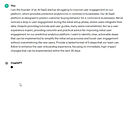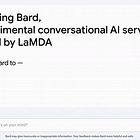Jobs for AI specialists
New jobs on the market requiring AI knowledge and jobs which are easier with AI
AI has drastically changed the job market. Now, job titles like "AI ethicist" and "ML engineer" are not just buzzwords but crucial positions. Nowadays, you need to be as familiar with AI as you are with office coffee machines; who knew "talking to robots" would be part of the job description?
Studies show that by next year 97 million new roles may emerge, particularly in AI development, data analysis, and tech-driven sectors. AI recruitment industry has already reached $590.50 billion and only continues to grow since more than 70% of recruiters predict that all firing and hiring decisions will be made by AI very soon.
Let’s see what you will have to learn to survive in this Brave New World:
“Talking to robots” (Prompt engineer)
As we mentioned above, sweet-talking robots is the new “confident PC user”. But there are people who engage in those conversations for a living, and they are called prompt engineers. They know how to get the annual sales report out of LSTM networks and make hot reels with Stable Diffusion. This role demands skills in programming, linguistics, and a knack for understanding AI behavior.
“Holding robots accountable” (AI ethics specialist)
You’ve probably heard about OpenAI and Scarlett Johansson scandal and that is exactly what ethics specialists will be hired to mitigate.
They will be in charge of developing ethical guidelines and policies for AI projects. For example, they might assess an AI-driven hiring tool to ensure it doesn't discriminate against certain demographics. Skills needed for this position include critical thinking, effective communication, and familiarity with AI frameworks and regulations.
Ok, but what about actually getting inside of robots and creating them?
Of course, there are AI software developers! Using tools like TensorFlow, PyTorch, and Keras they build and train models which we later use to see how Shrek would look in a pink tutu. To get this job, you need to know programming languages like Python, have a strong grasp of machine learning principles, and understand data structures and algorithms. Plus, being able to debug code while half the time wondering if AI is secretly judging your mistakes is a bonus!
ML engineers teach those models to differentiate data and solve complex problems like analyzing vast amounts of data to identify patterns indicative of malicious activity, helping to protect systems and networks from cyber-attacks.
This also brings a new job to the market — a cybersecurity engineer with AI knowledge. For example, Mike Beck used to be an investigator for MIT who later moved to cybersecurity claimed that he always relied on his intuition when dealing with malware. And now at Darktrace Antigena, AI can do it for him, for example, famously saving thousands of healthcare records during the 2017 WannaCry ransomware attack.
Share this with your friends and colleagues, especially if they are AI-savvy!
As we can see, AI is not taking your job from you, but rather making you better as a pro.
And creating some new professions you can acquire with it:
Financial analyst
Professionals entering AI in finance need a strong foundation in quantitative analysis, machine learning, and financial markets. Proficiency in Python and awareness of regulatory and ethical considerations are crucial.
AI currently aids in fraud detection, algorithmic trading, and personalized banking services. Future advancements include better risk management, automated compliance, and personalized financial advice using AI insights.
AI Engineer
The technology sector requires expertise in computer science, software engineering, and AI fields like machine learning, deep learning, and robotics.
Experience with cloud computing, big data, and IoT is essential. AI applications include autonomous vehicles, drones, and smart home devices.
Predictive Maintenance Engineer
Aspiring AI professionals in manufacturing need expertise in industrial engineering, machine learning, robotics, data analytics, and IoT management.
Current AI focuses on predictive maintenance, real-time production optimization, and automated quality control.
Future trends include digital twins for process simulation, advanced robotics for flexible production, and AI-driven supply chain optimization.









